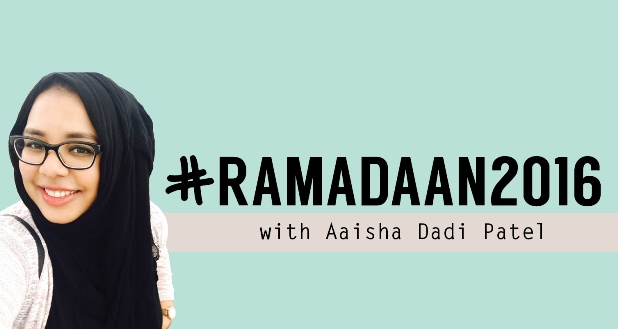Day 4
With one of the primary aims of Ramadan being an enhanced consciousness of God, I have been trying to make an active effort to actually be more aware of Him. Easiest way to do that? A minimised YouTube tab. Don’t laugh.
The Prophet (SAW) said, quoting: “AllÄh the Exalted and Transcendent stated: ‘‘I am near to the thoughts of my bondsman (servant) as he thinks about Me. And if he remembers Me in his heart, I also Remember him in My Heart; and if he remembers Me in an assembly, I Remember him in a better Assembly; and if he draws near to Me by the span of a palm, I draw near to him by a cubit; and if he draws near to Me by a cubit, I draw near to him by the space of two hands; and if he walks towards Me, I will rush (run) towards him.†(Recorded in the books of BukhÄrÄ«, Muslim, TirmidhÄ« and Ibn MÄja).
There’s a woman at Wits working in the admin in the engineering department, Aunty Janine, who always has Cape Town dhikr (basically, short phrases or prayers that are repeatedly recited silently, or aloud) blasting when I go past her office to pick up photocopies. She’s such a wonderful lady – I barely know her, but in the 5-10 minutes I’m in her office she treats me with such charm and fills me in on her health, her sister, and we also gush over the photocopier. (IT STAPLES COPIES ON ITS OWN! Like magic!)
Anyway, I took a cue from her and while I did everything else I did, managed to find a YouTube playlist to keep the dhikr on loop.
I love Capetonian dhikr! It is soothing and calming, beautiful and rhythmic, and I feel like I can just sense the sincerity and passion of the reciter by listening to it.
More than just that, though, when I listen to it, it transports me straight back to my time living in the Cape (2002-2007). Initially a total culture shock for 8-year-old me, Islam is firmly embedded in some spaces of Cape Town. I lived in a predominantly white area in Strand, and after school would attend madressa, or Islamic classes, in areas with high concentrations of Muslims. This is where I met so many people who thought I was the strange one for never having heard the words “kanala†or “pwasa†before. In grade four, I moved to a Muslim school in Rylands (only for a year though – the travelling was hectic and I didn’t adjust well), where I had even more Cape Muslim experiences for the first time, including the moulood (celebrations of the prophet’s birthday).
While I did a lot and learnt a lot, I couldn’t have rationalised it then the way I obviously can now. I was very young and up until then my own culture had been the only one I knew, so I definitely viewed some things as strange at the time just because I’d never considered the possibility of them before – but I was 10, so I forgive me. Today, I’m thankful to have had all of the experiences I’ve had – there’s no doubt that they’ve enriched me as a person, and leave me with sweet reminiscences.
I always remember how everything that I partook in with other Muslims in Cape Town – even if it was my first time – made me feel like I was really part of something. There was such camaraderie, and always so much of love. I always think of how when I read salaah at the masjid, particularly on Jummah, the women would turn to the person next to them and give them a hug and a kiss, even if they didn’t know them. To me, this was the Arabic phrase
Ø£Øبك٠ÙÙŠ الله
in motion – “I love you for the pleasure of Allah.”
It’s easy to forget these things – how central love is to worship, not only love of the Creator, but also of his creation. And that’s a major take away from the way that Islam in Cape Town is practised (in my experience at least) – the way that that is so emphasised. So thank you, Capetonian dhikr (which I’m probably calling the wrong thing – feel free to correct me please) for taking me back to remembering that.
I love you Cape Town – for the pleasure of Allah!
This is a special Ramadaan series by our fave Muslim reporter, Aaisha Dadi Patel. To catch up on Day 3’s musings, read this.









